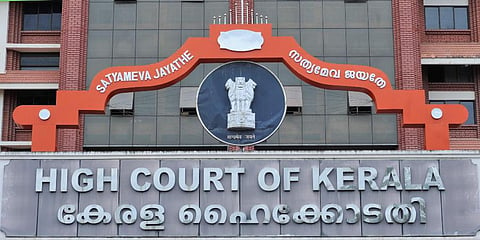

KOCHI: Nuns and priests now have to pay income tax as the Kerala High Court has held that salaries paid to them are liable for tax deduction at source. The court pronounced the verdict quoting the Bible verse, "Render unto Caesar the things that are Caesar's, and unto God the things that are God's."
Justice SV Bhatti and Justice Bechu Kurian Thomas issued the order on the 49 appeals filed by religious congregations, nuns and priests including the Provincial Superior, Nirmalrani Provincial House, Idukki. They submitted that the salaries received by the nuns and priests and made over to the religious congregations were not chargeable to income tax, and tax was never deducted at source from the salaries paid to them. They relied upon circulars issued by the Central Board of Direct Taxes (CBDT) in 1944 as well as in 1977 to claim exemption from TDS. Nuns and priests are not entitled to have any income or hold any property and all their properties, assets including salary and pension, belong or accrue to the religious congregation.
The government submitted that the CBDT circular of 1944, as well as that of 1977, deal with and refers to the income earned by 'missionaries' as 'fees', in contradistinction to the salary earned by nuns or priests. The canon law cannot have predominance over the Income Tax Act under any circumstances.
The court observed that it is the statutory duty of the person paying any income as salary to another, to deduct, at the time of making the payment, income tax at the rates in existence. None of the provisions provides an exemption for any category of persons, based on their nature of vocation or occupation. Section 192 of the Act obliges every person who makes a payment under the head ‘Salaries’ to deduct tax at source at the rates prescribed without fail. "The legislation enacted by the legislature gains primacy and supremacy over the personal laws," said the court.
The petitioners contended that as per the canon law, once a perpetual vow of poverty is taken, the nun or priest, undergoes a civil death, and thereafter, they are not 'persons' under the Act. The court replied that the concept of civil death propounded by canon law is not real. The extent of civil death under canon law is limited in its extent and in its operation. The said fiction under the canon law, cannot be extended to cover all situations in the life of a nun or a priest. It cannot be extended to cover situations governed by the statutes enacted by the legislature unless the same is recognized by the provisions of the statute. "None of the provisions of the Income Tax Act recognize the concept of civil death. Thus the concept of civil death has no application under the Income Tax Act," observed the court.
The nuns and priests are part of society. They can walk freely, speak freely and even indulge in most of the regular activities unrestricted, like any other individual. They enjoy all privileges that the law confers upon other persons, including fundamental rights under Part III of the Constitution of India. They act as managers of educational institutions, hospitals and other establishments. They enter into contracts for manifold purposes. In all these spheres, they act like any other living human. the concept of civil death under the canon law, not only stands eclipsed but has no relevance vis-a-vis the taxing statutes.
The court said that CBDT does not have the power to issue any circular excluding or exempting a person or a category of persons from the tax provisions.